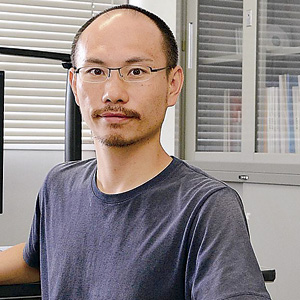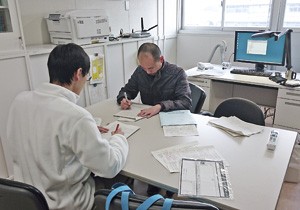
-

Information
MIYAJIMA Shinya Professor
Course
-
Faculty
Mathematical Science and Physics
-
Master's Program
Mathematical Science and Physics
-
Doctoral Program
Fundamental and Applied Sciences
Degrees Obtained
- Doctorate (Information Science)
Fields of Research
- Matrix Analysis
- Numerical Analysis
- Numerical Computation
Profile
- March 2005: Completed Information Science Doctoral Program, Faculty of Science and Engineering, Waseda University Graduate School
- April 1 2003 - March 31, 2006: Assistant, Department of Information Science, Faculty of Science and Engineering, Waseda University
- April 1 2006 - 31 August 2007: Visiting Lecturer (full-time), Advance Research Institute for Science and Engineering, Waseda University
- 1 September 2007 - March 31, 2013: Associate Professor, Department of Mathematical and Design Engineering, Faculty of Engineering, Gifu University
- April 1 2013 - March 31, 2016: Associate Professor (through reorganization), Department of Electrical, Electronic and Computer Engineering, Faculty of Engineering, Gifu University
- April 1 2016 - Present: Professor, Department of Physical & Material Science and Engineering, Faculty of Science and Engineering, Iwate University
Research Themes
Numerical verification of solutions to matrix problems
Numerical calculations performed using calculators are not done accurately. The results of the four basic arithmetic operations are sometimes approximated to a certain decimal place, meaning that infinite operations, including limits, are all approximated to finite operations. In order to obtain correct conclusions from calculation results, error assessments in the results must be carried out to determine the range in which the exact solution lies. Numerical verification is a method for doing this with a calculator. I am interested mainly in research of the establishment of new numerical verification methods for solutions to matrix problems.

Teaching Philosophy
I educate students to challenge themselves to solve problems with unknown solutions in the aim of maturing their fundamental knowledge of mathematics until it is in a “usable state.”


